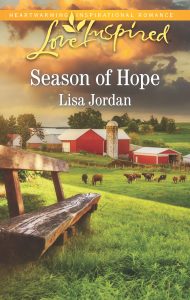by Lisa Jordan, @lisajordan
One star.
Wow.
My breath caught in my throat and heat crawled across my cheeks as I read the reviewer’s words that expressed her displeasure after reading one of my novels. How could she write such things? Didn’t she realize the struggle and tears that went into meeting that deadline?
Of course not.
Readers aren’t aware of life’s challenges we’re juggling while writing novels.
With her words echoing inside my head, I emailed my writing support team—agent, editor, and two mentors—asking if her words were true. After being assured I hadn’t failed as a writer—and advised again not to read reviews—I reread her review again. This time, though, I gleaned some wisdom from her words.
She’d written a well thought out review citing examples from the novel to prove her points. Despite the one star, I appreciated her feedback once I had some time to process what she had to say. Then, I considered how I could learn from it to become a better writer.
One of the reviewer’s complaints pertained to one of my character’s personality. So now when I create new characters and write their story arcs, I strive to ensure they are likable even if they are facing challenging situations.
When we do get those tough reviews, we can ask ourselves several questions to help process difficult words:
- Consider the source. Reviews are subjective—one person’s opinion. However, is the reviewer someone who reads a lot of books, reads a variety of genres and expresses her opinion clearly?
- Consider the genre. Readers who like a book but give it a lesser star based on genre frustrate me, particularly if they claim they didn’t realize it was Christian fiction. Reading the back-cover copy should give the reader a general idea if the novel is Christian or secular.
- Consider teachable moments. After reading the reviews, ask yourself if there’s some teachable moment threaded in the reviewer’s words. Is more than one reader saying something similar? Talk these concerns over with your agent and editor. Is this a weak area in your writing? Should you strive to change that particular component?
- Consider the process. The publishing process requires many eyes to read our work. Manuscripts are seen by craft partners, beta readers, agents, editors, line editors, content editors, and back to authors to review final revisions before the stories hit the presses. Of course, mistakes still happen. After all, no one is perfect. However, agents and editors have a feel for what works and what doesn’t work in a particular publishing house. If your story doesn’t resonate with a reader, that’s not to say it’s a terrible story—it’s been vetted through the whole publishing process. It just means that reader doesn’t have a connection with your novel.
- Consider your abilities. As writers, we need to believe in ourselves and the talents we’ve been given. We can’t allow every review to shake our confidence. Otherwise, we will be too paralyzed to write something new. When our novels are released, we need to remember we did our very best. Our editors loved the story and offered a contract.
Authors risk feedback the moment their books are made available to the public. Of course, they want their readers to love their stories and their characters. But you know what? They can’t please everyone. They simply need to write to the best of their abilities and submit their finest work. After all, as authors learn more about the craft, they will write stronger books…and read fewer reviews.

His dreams can all come true…but only if his ex-wife will agree!
Jake Holland’s peaceful dairy farm is a sanctuary—one he wants to share with other worn and weary veterans. He just needs one more piece of land to start his program…and it belongs to Tori Lerner, his ex-wife. A collaboration could benefit them both, but with a past full of secrets between them, is there any hope for renewed love?
 Heart, home, and faith have always been important to Lisa Jordan, so writing stories with those elements come naturally. Represented by Rachelle Gardner of Books & Such Literary Management, Lisa is an award-winning author for Love Inspired, writing contemporary Christian romances that promise hope and happily ever after. Her latest book, Season of Hope, released in March 2019. She is the Operations Manager for Novel.Academy, powered by My Book Therapy. Happily married to her own real-life hero for thirty years, Lisa and her husband have two grown sons. When she isn’t writing, Lisa enjoys family time, kayaking, good books, and being creative. Visit her at lisajordanbooks.com.
Heart, home, and faith have always been important to Lisa Jordan, so writing stories with those elements come naturally. Represented by Rachelle Gardner of Books & Such Literary Management, Lisa is an award-winning author for Love Inspired, writing contemporary Christian romances that promise hope and happily ever after. Her latest book, Season of Hope, released in March 2019. She is the Operations Manager for Novel.Academy, powered by My Book Therapy. Happily married to her own real-life hero for thirty years, Lisa and her husband have two grown sons. When she isn’t writing, Lisa enjoys family time, kayaking, good books, and being creative. Visit her at lisajordanbooks.com.

